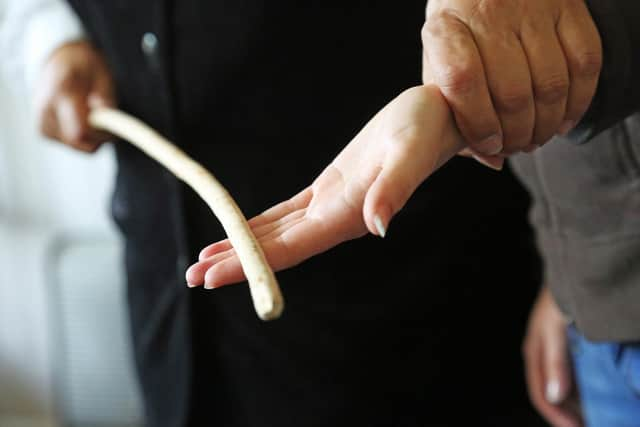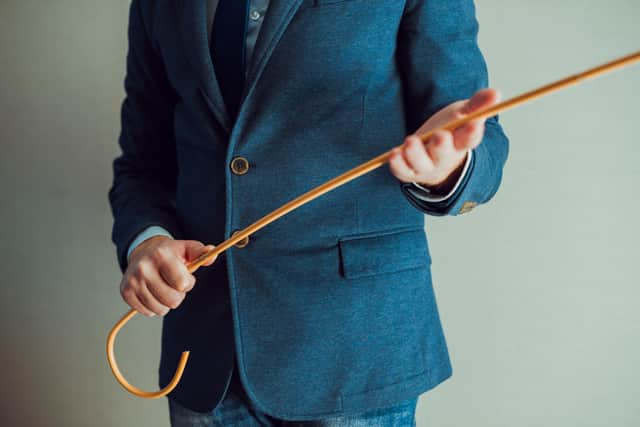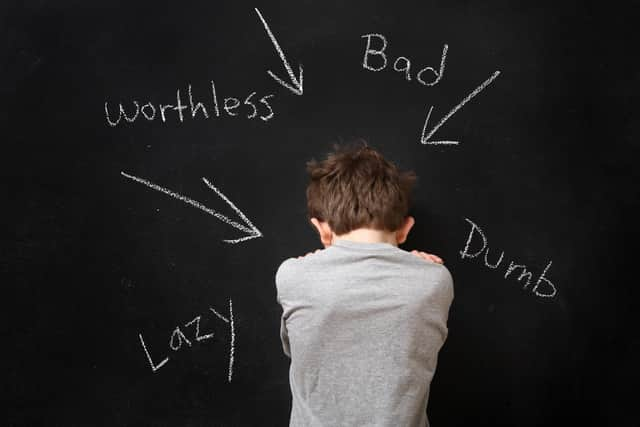Corporal punishment rather that capital – neither are nice prospects
and live on Freeview channel 276
Going to school in the 60s, 70s and 80s, it was important that at least the teacher knew the difference.
Smacking is back in the news, and many will say physically punishing a child never did anyone any harm.
Advertisement
Hide AdAdvertisement
Hide AdCan we really justify violence towards a child while condemning violence towards adults in the same breath?


Violence in war, and conflicts is a terrible thing with more and more vivid images on our TVs everyday.
The saga at the last Oscars where Will Smith slapped Chris Rock over a joke at the expense of Smith's wife's hair – or lack of it – divided opinion for and against his violent act.
Going to school in the era I did, corporal punishment was part and parcel of school life.
Advertisement
Hide AdAdvertisement
Hide AdTeachers had numerous punishments in their armoury to punish or deter pupils from misbehaving.


Some teachers saw it as a useful and necessary tool, for others it was a last resort, and some never used it at all.
Punishment would come in different forms, psychological or physical.
There was standing in the corner facing the wall or “lines” – writing a repetitive sentence over, and over again only to see your work ripped up in front of your face.
Or maybe it was daytime or after-school detentions.


Then there were the more physically painful penalties.
Advertisement
Hide AdAdvertisement
Hide AdI, like many at school, had their moments which sometimes meant coming into contact with teachers who used corporal punishment as a tool.
I’m sure corporal punishment was also gender specific. I’ve never heard of a school girl getting the cane. They – the girls – mainly spoke about a rap on the knuckles from a ruler, or at the back of the legs.
Boys however would regularly suffer the slipper, or the cane, and sometimes “a clip round the ear”.
There was a certain amount of bravado attached to it, with some seeing it as a badge of honour, while wringing their hands and holding back the tears.
Advertisement
Hide AdAdvertisement
Hide AdYou would never, or in the rarest of cases ever, receive the cane or slipper if you were reasonably behaved, simple really.
The only occasion I can recall an innocent receiving physical punishment was my friend Neil.
When crowded into a busy foyer at school, my very well behaved friend was pushed back due to the over crowded area.
Unfortunately he stepped back on to the foot of a teacher, and his immediate reaction was to slap Neil hard across the back of his head. A pure accident for which he didn't deserve that reaction – this I thought very extreme, but also unacceptable. That's probably why I never forgot it.
If it happened today it would receive world wide attention.
Advertisement
Hide AdAdvertisement
Hide AdThe other occasion that many will remember was the bitter sweet fictional scene in the film Kes where the young pupil came with a message for the headmaster and was forcefully coerced into holding smoking paraphernalia. He received the cane - guilty by perceived association.
It brought tears and smiles to viewers faces in equal measure.
Thankfully the canning and slippering in our classrooms is a thing of the past.
Comment Guidelines
National World encourages reader discussion on our stories. User feedback, insights and back-and-forth exchanges add a rich layer of context to reporting. Please review our Community Guidelines before commenting.